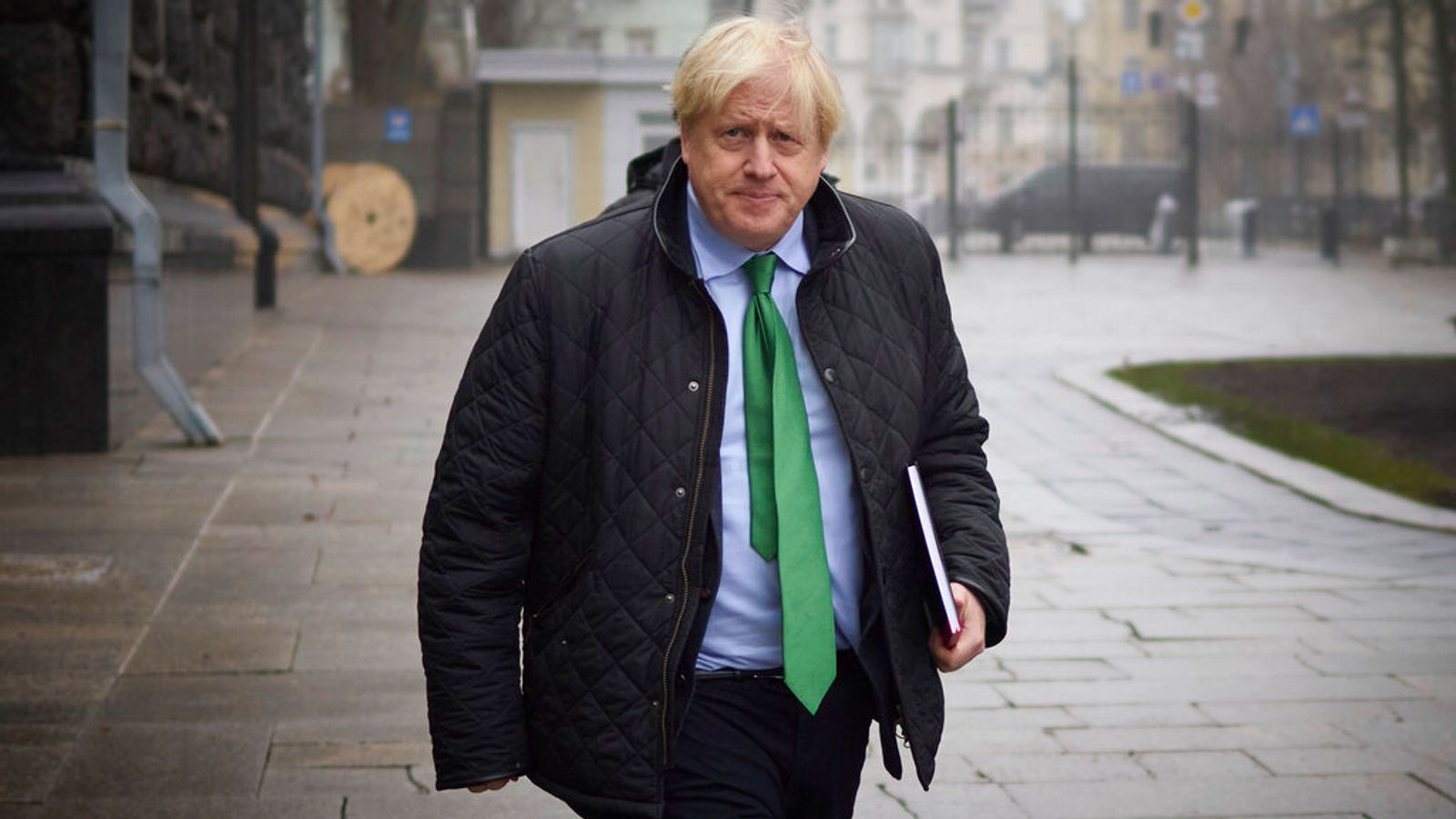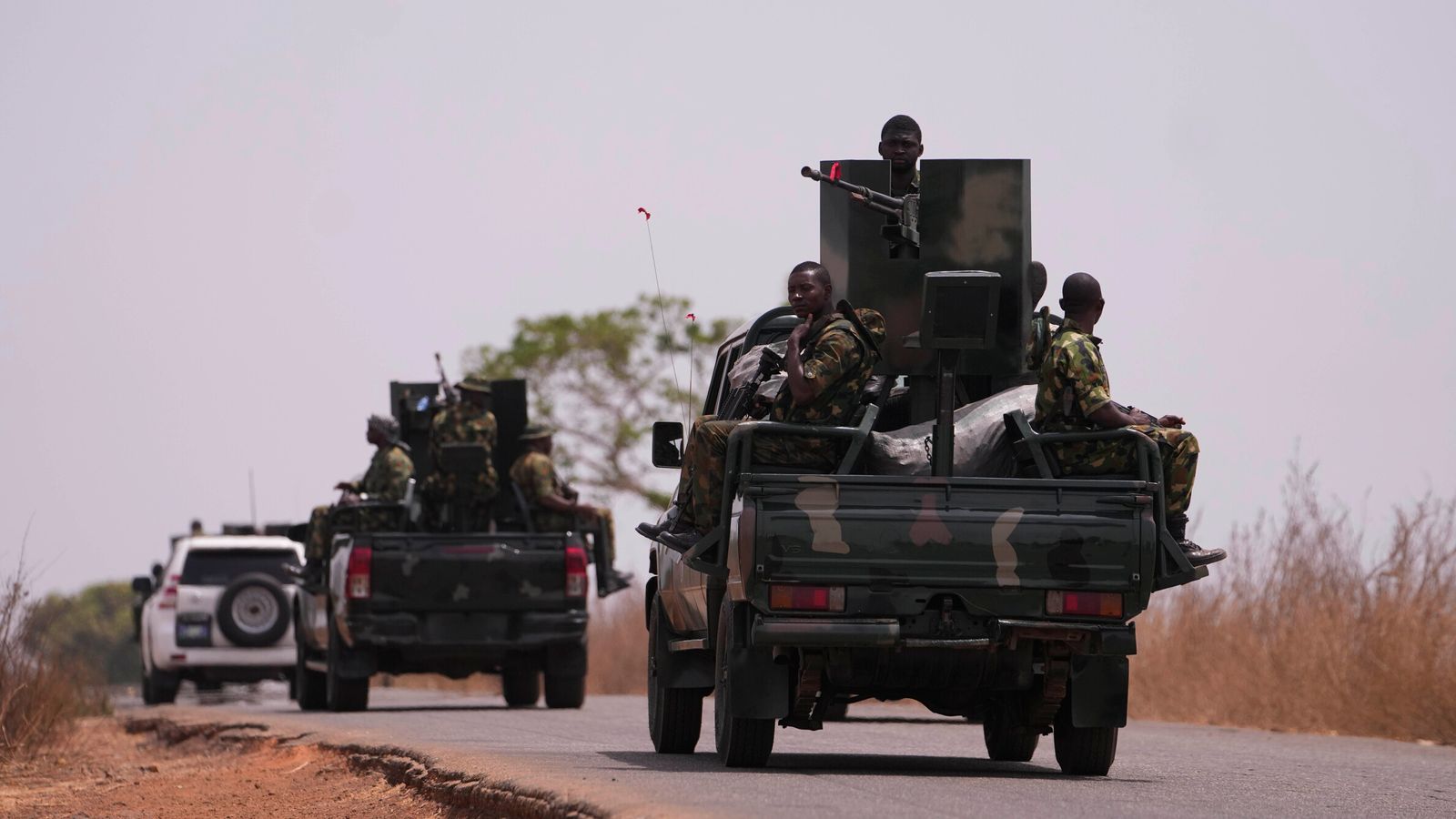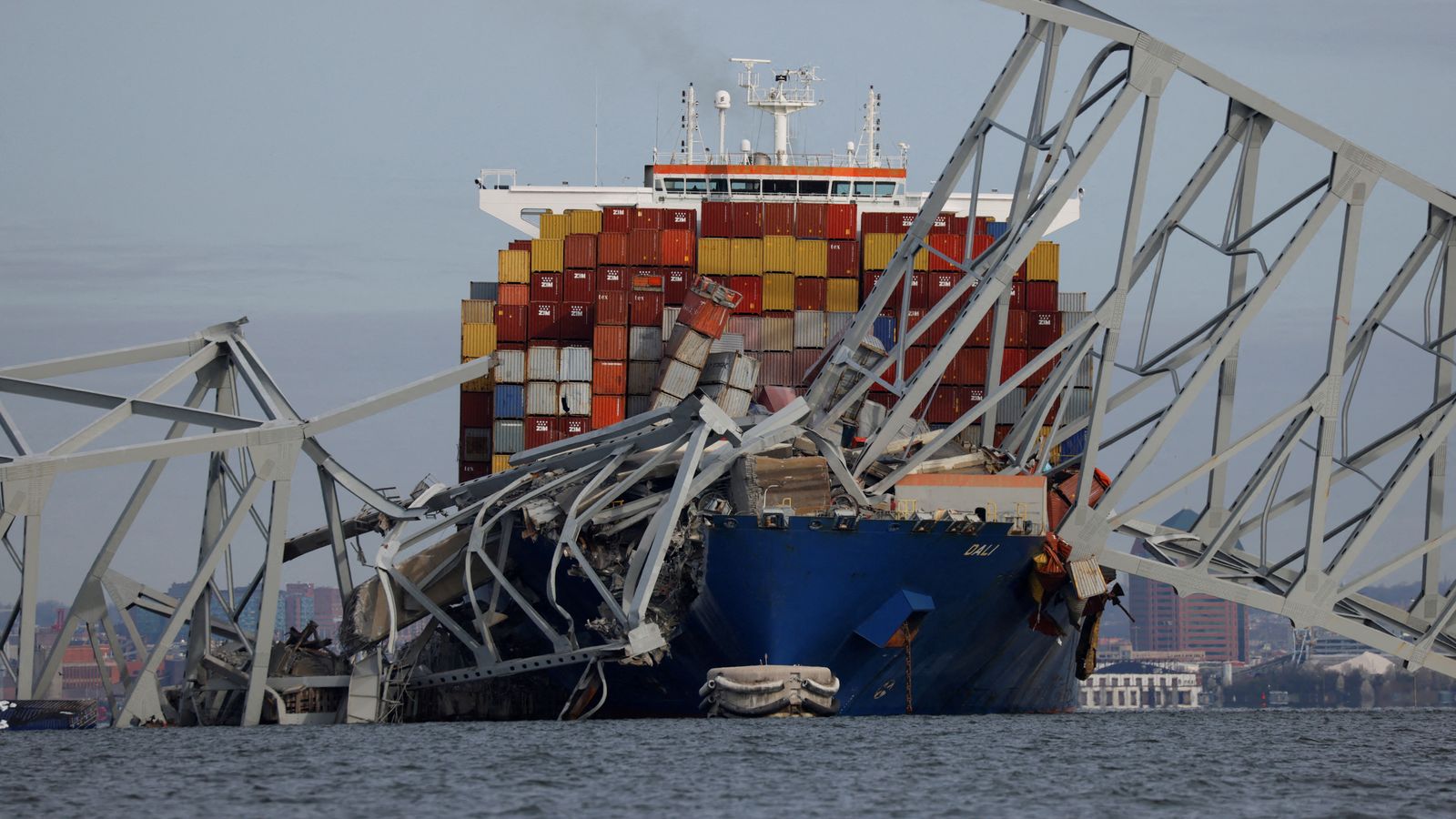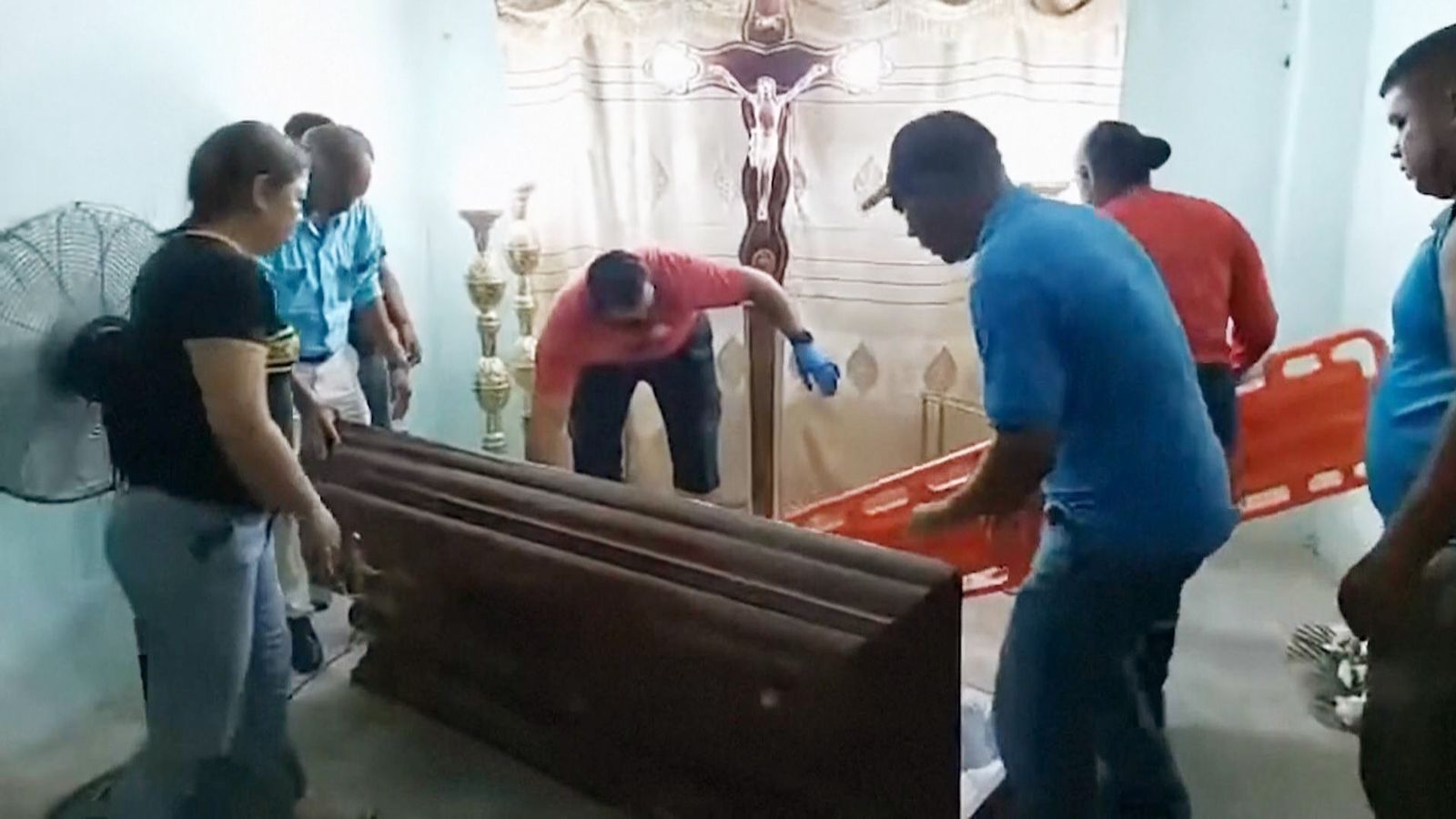Sky News is the first international broadcaster to reach the centre of the Mozambican town of Palma since it was ransacked by extremist militants linked to the Islamic State.
Our team saw bodies still lying in the street and multiple shops, offices and homes, as well as a hospital had been vandalised and set alight.
The mobile phone mast had been destroyed and power lines pulled down.
ISIS Mozambique, also known locally as al Shabaab, says it carried out the attack with residents telling us that it appeared well planned.
The attackers mounted the assault on the town from three different directions and were well armed.
Residents told us they were shooting indiscriminately and wielded machetes, with several witnesses telling us they carried out beheadings.
The streets were littered with spent bullet cartridges.
Dozens are believed to have died in the attack, including a Briton who was working in the region.
Thousands fled the fighters and hundreds are still hiding in the surrounding bush.
We were flown in by military helicopter – the only way to reach the town which has been cut off for nearly two weeks.
We accompanied the region’s governor, Valige Tauabo, who was seeing the destruction himself for the first time.
He was visibly shocked at the wanton violence and damage.
“They have destroyed a lot of vital infrastructure,” he told us. “But you can see we were able to get here and you are able to walk around safely.
“We are hoping the people can return to their homes within three days.”
I asked him outside the destroyed hospital in the centre of Palma whether he could guarantee another attack would not happen.
“This, I cannot say,” he said, frankly. “All I can say is we are here with our troops and we feel okay.”
He refused to be drawn on whether this attack and others were orchestrated by Islamic extremists linked to ISIS, despite the terror network claiming it had carried it out.
Videos posted on the terror network’s social media outlets claim to show what looks like dozens of fighters gathering immediately after the Palma attack.
Many of them were dressed in camouflage military clothing and were wearing red bandanas.
The Cabo Delgado region is predominantly Muslim and it is not known for any religious disunity.
The Mozambican president himself is from the area and the authorities have been horrified by the scale of the assault which analysts have called a “game changer”.
The northern areas of Mozambique have been subjected to multiple insurgent attacks for the past three years, but not on this level.
There’s very little known about this shadowy group which claims it is affiliated with the Islamic State but doesn’t appear to have any ideology, stated aim or recognised leader.
The fighters were described by Palma’s residents as a mix of nationalities and were heard talking in several languages including Swahili, one of two national languages in neighbouring Tanzania.
Other fighters were identified as from Uganda and DRC as well as “light-skinned” combatants who were described to us as Arab in origin.
The attack in Palma is very close to the site of the country’s $60bn (£43bn) liquefied natural gas (LNG) project which was promised to transform the fortunes of this desperately-poor region.
The assault came hours after the Mozambican government and the French gas company Total announced they were restarting work on the site.
It was going to be the first time since January that work would begin after being suspended at the start of the year due to security concerns over earlier insurgency attacks.
But in the last few days the company has shocked the Mozambican government and aid agencies by evacuating all its staff.
The military now control the environs of the Total project on the Afungi Peninsula close to Palma town.
The World Food Programme in turn halted all its aid flights into Afungi citing the security issues.
The decision means tens of thousands of people reliant on aid and who are now living rough, having fled the Palma attack, have been struggling without proper food or water for nearly two weeks now.
As we were leaving Palma, people were slowly trickling back into the town. Many headed straight to the vandalised shops to grab whatever food and water they could.
We saw soldiers holding three young men, using their t-shirts to wrap around their eyes as blindfolds.
They told us they were acting suspiciously.
Many sources told us they believe the town was infiltrated by insurgents before the act and have since blended in with those fleeing the area.
As the troops questioned the men, a shot rang out and we were hurried out of the town with the governor to catch the Mi24 helicopter gunship which had dropped us there.
The Mozambican authorities are coming under increasing pressure to accept outside military help to stop the insurgency spreading further across the country and spilling over into neighbouring nations.
The militants have controlled the strategically important port of Mocimboa da Praia on and off since August last year and there are a number of smaller towns and villages subjected to sporadic attacks.




